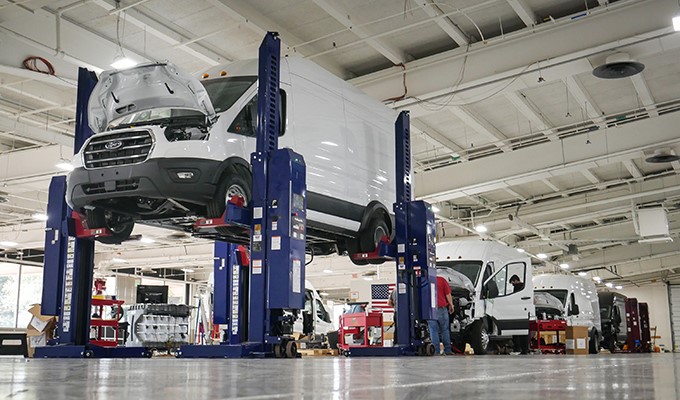Lightning Systems will lower prices of 2021 battery and fuel cell electric vehicles by 10-50% for Class 3-8 vehicles. In addition to lower prices, zero-emission vehicles from Colorado’s Lightning Systems also will have new features, including:
- High-speed Level 2 charging
- Faster DC fast charging systems
- Enhanced telematics and new remote software management features for fleet managers and drivers
- In-cab display enhancements in all vehicles
- Improved range and payload capacity from higher energy density battery solutions
“As we are witnessing in the passenger EV market, higher sales volumes are translating into lower prices,” says Tim Reeser, CEO of Lightning Systems. “With fewer than 1,000 commercial electric vehicles expected to be built overall during 2020, every commercial vehicle OEM has struggled with high prices due to the low production volumes—but that is now changing for Lightning. With our influx of large orders, we are realizing economies of scale, moving from producing tens of vehicles per month to hundreds of vehicles per month. Our component costs are falling fast, and we are constantly introducing new automation and efficiencies in our manufacturing processes. And we are passing these savings on to our customers.”
Nick Bettis, director of business development at Lightning, added that these price reductions provide a compelling ROI for Lightning’s vehicles. “When you combine these lower prices with new financing options that we are offering and subtract the monthly operating savings derived from the electric vehicles, the per month cost of each vehicle will be lower than vehicles powered by internal combustion engines. So customers will be putting money in their pocket every month,” Bettis says.
FLEETS IN MIND
Lightning Systems’ builds electric commercial vehicles on familiar chassis such as Ford Transit 350HD, Ford E-450, F-550, and Chevrolet 6500XD. “Our products are especially attractive to fleets because these are built on chassis that they are already using in their gasoline or diesel configurations,” Bettis adds. “Fleets already know how the vehicles operate; their mechanics are familiar with them; they know where to get spare parts; and they can get liftgates and shelving and other upfit accessories.”
Lightning currently has production capacity available this calendar year for some models and is already partially booked for 2021 production. Furthermore, the lower prices take effect immediately and apply for 2021 and 2022 deliveries.
Last month, Lightning Systems announced the launch of Lightning Energy, a new division of the company that offers charging technologies and services to commercial and government fleets. Additionally, Lightning Energy designs, installs, services, and manages charging solutions, providing fleets with turnkey options to support fleet electrification and help stakeholders achieve their sustainability goals. Lightning Energy offers a full range of purchased or leased charging stations and, optionally, full charging as a service (CaaS). CaaS will include infrastructure installation, permitting, utilities liaison, maintenance, and ongoing management software. It also includes regulatory credit monetization to operate small, medium, or large fleets of electric vehicles.
“Now you can order integrated and financed zero-emission, all-electric vehicles and customized charging solutions to fit your fleet’s needs,” Reeser says. “We are a one-stop shop for all of your commercial EV requirements.”
Find out more, visit www.lightningsystems.com.




